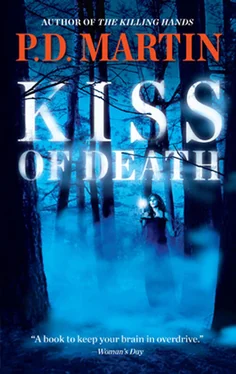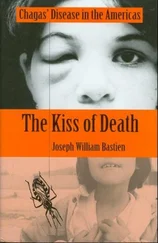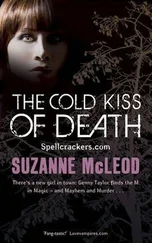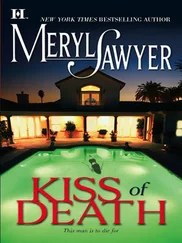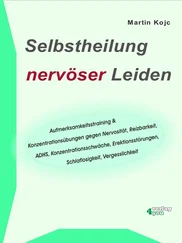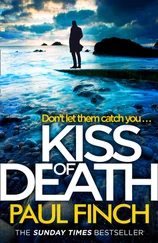The question is, then, if After Dark is a cult, is it a destructive one?
A destructive cult tends to have one charismatic leader, uses deception in recruiting, uses thought-reform methods to effectively brainwash its members, is isolated from the rest of society, distinguishes between their kind and the rest of the world and strictly controls members’ daily routines. But from what I know so far, this group isn’t isolated, geographically at least. Riley and Davidson live in WestHo and Ward lives in Los Feliz. And having not met Riley or Davidson, it’s difficult for me to decide if they’re the “type” to be attracted to a new religious movement. From a psychological perspective, cults can give people a sense of belonging and a sense of purpose—two things people are striving for these days. Likewise, an NRM can guide people in their behavior—tell them what’s right and wrong—and some individuals would rather feel guided, controlled even, than alone. But if After Dark is a destructive cult, its members could be convinced that killing a woman in a ritualistic way is okay, even required. Members don’t usually question their leader’s instructions. Charles Manson and his “family” are a classic example. In 1969 Manson convinced four of his members to kill Sharon Tate and four of her friends. These cult members followed their leader’s directions without question, despite the fact that Tate was five months pregnant. They believed Manson represented the Second Coming and was infallible; and he convinced them that the act of killing another human being was simply releasing them from their physical bodies. Murder was not a heinous crime in their minds.
Jonestown is another famous example of the hold a charismatic leader can have on his disciples—and its disastrous results. Reverend Jim Jones founded the People’s Temple of California and even managed to rub shoulders with some of America’s most powerful individuals. Before long, nine hundred and seventeen of the cult’s members were killed in what initially looked like a suicide pact, but investigators soon realized that about two hundred died voluntarily and the rest were murdered by fellow members under the direction of Jones. Even those that killed themselves did so at Jones’ direction. Such is the power of charisma.
I check my e-mail and notice that Mercedes has sent me the full file on Ward, but before I look at that I decide to research new religious movements a little more, concentrating this time on the typical personality types of members.
An hour later, I check in with Sloan.
“How’s it going?” I ask.
“Getting there. I’ve put through all the paperwork for Sherry’s credit card records and phone records, plus I’ve logged a request for a computer forensic technician to get onto Sherry’s laptop.”
“Great. And the DNA?”
“Personally dropped it in.”
I fill in Sloan on my recent activities, including the online information I found out about the clubs.
“It’s a whole other world, huh?”
“You bet. Tonight’s Malediction Society and I thought I might pop in around seven to talk to the staff.” I’m hoping to find a manager or someone there, but if I decide to go tonight as a Goth, I’d also like to get the lay of the land before I turn up in a part of town I don’t know very well.
“You do know it’s Sunday night, Anderson?”
“I know. But the next Goth night isn’t until Thursday.”
She’s silent for a bit. “I guess it can’t hurt. If Todd is telling us the truth, it makes sense to check out the Goth angle, too.”
“Uh-huh. I’ve also got some info on Ward. I haven’t reviewed it yet myself, but I’ll e-mail it through to you.”
“Thanks.”
“If Sherry Taylor did go to a Goth club last night, it must have been Bar Sinister. Hopefully there’s surveillance footage somewhere to prove it. I’ve left a message on the club’s answering machine.”
“Good. Let’s see if Todd Fischer’s story checks out.”
Sloan’s keeping herself open, a little, to the possibility that vampires were involved in the murder, but at the same time she’s running down one of her prime suspect’s stories.
We arrange to meet at Malediction Society before hanging up. Time to find out more about Anton Ward. As I’d expect, Mercedes has been thorough. She was able to confirm many of the details in the article, including the fact that Ward was born on September 7, 1977 and his real name is Brett Simons. He changed his name to Anton Ward when he was twenty.
Her search on birth records brought up a copy of his birth certificate, which lists his parents as Laura and Jack Simons. They had no other children, and died when Ward was eighteen. She’s also e-mailed me copies of their death certificates, a few newspaper articles on the car accident that killed them, as well as the police report for the crash. The report notes that it looked like Jack Simons fell asleep and veered off the road. His wife died instantly and he was announced dead on arrival at the local hospital. Neither speed nor alcohol was involved in the accident.
Jack Simons was a wealthy entrepreneur, who ran businesses in real estate, both residential and commercial. He was responsible for several large developments on the East Coast, covering Massachusetts, New York, Rhode Island and Virginia. He was also a large player in the stock market and on his death his estate was valued at over $300 million. While ten percent went to charity, the rest went to his sole heir, Brett Simons, aka Anton Ward.
I’m just about to move onto Mercedes’ findings from the property records when my BlackBerry buzzes. I hit Answer without looking at the display. “Agent Anderson.”
“Hi, honey. It’s me.”
“Hi, Darren.” I know it’s cliché, but just hearing his voice makes me feel warm and fuzzy. Detective Darren Carter and I met on a case that took me to Arizona a year and a half ago and we’ve been doing the long-distance dating thing for just over three months now.
“I’m at the airport. Cab, given you’re not here?”
Uh-oh…I totally forgot. “Yeah, if you can grab a cab that’d be great.” I chew on my bottom lip.
There’s silence for a beat before he says, “You forgot I was coming, didn’t you?” There’s a hint of annoyance in his voice.
“No… Kinda.” I take a breath. “I’m on a case. Murder victim, found this morning.”
“You’re working on a Sunday? Thought it was just us homicide cops who worked hard.”
“Ha, ha—you’re off duty…not exactly working hard.”
“Yup. Three days off to spend with my lovely girlfriend.”
I wince, wondering how much time I’ll actually get to spend with Darren in the next seventy-two hours. I avoid that particular topic. “I’ll be home in a couple of hours. Grab a cab and let yourself in.” I take a quick glance at my watch—6:05 p.m. We say our goodbyes and hang up.
Back in the file, property records indicate Ward owns two residential houses—one here in Los Feliz and an apartment in New York. And according to Mercedes’ search of companies, Ward is on three boards, including being chairman of two of his father’s original companies. Mercedes has provided copies of the short bios posted on these companies’ Web sites, from which I glean that he attended private school and studied a Bachelor of Arts at Stanford University, taking courses in art, art history and history. The only thing on the police system for him is a DUI in Virginia shortly after his parents died. He lost his license for six months and has kept his nose clean since.
Looks like he moved to L.A. in 2001, a year and a half after he finished college. He has kept some of the family businesses running, but seems to mostly live off investments. Then again, it can’t be too hard to draw a good salary from $270 million. No gun licenses or hunting and fishing licenses and nothing else in the system.
Читать дальше
